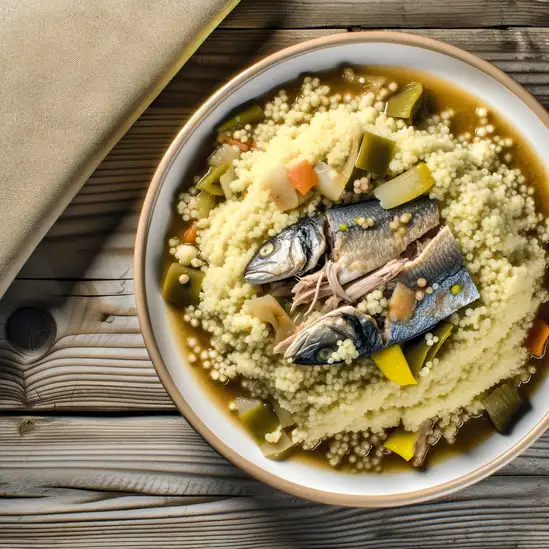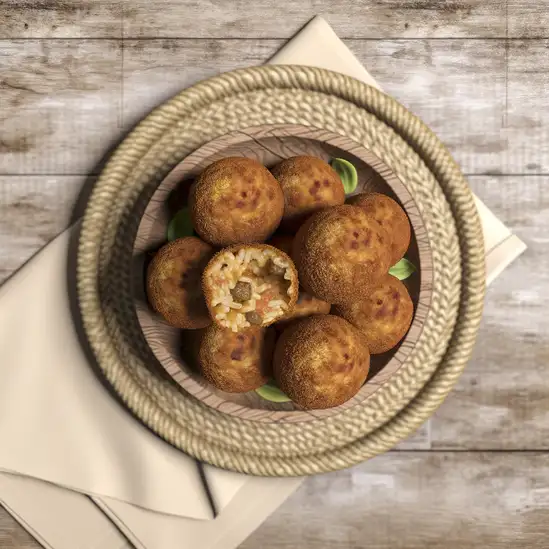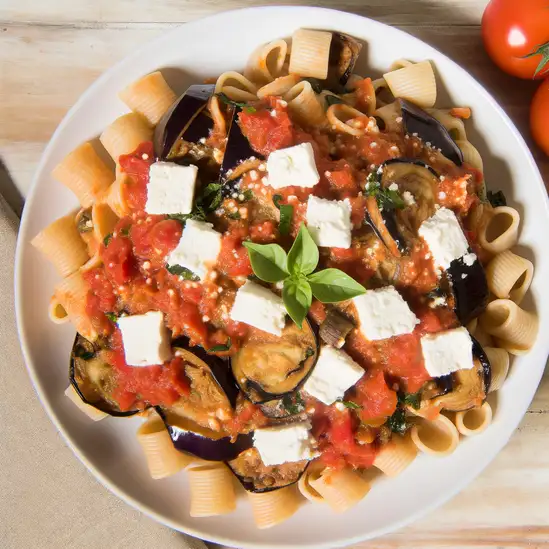



If you ever find yourself dreaming of a place where history,sea,and sunshine blend effortlessly,Cefalù is that kind of magic. Walking through its narrow,cobbled streets feels like stepping into a living postcard—ancient stone buildings bathed in golden light,the scent of salty sea air mingling with fresh espresso and baked bread from tiny cafes. The town hums with a relaxed energy,where locals greet each other warmly and the pace slows just enough for you to savor every moment. The real charm of Cefalù lies in its stunning coastline,where the turquoise waves gently lap against sandy shores framed by rugged cliffs. You can hear the distant chatter of families and the soft strumming of a guitar from a nearby piazza,while the sun warms your skin and the breeze carries hints of citrus and jasmine. Climbing up to the medieval cathedral,with its intricate mosaics shimmering in the sunlight,offers breathtaking views of the town and the endless sea beyond—a perfect spot to pause and soak it all in. What makes Cefalù truly special is its blend of vibrant Sicilian culture and timeless tranquility. From savoring fresh seafood at a seaside trattoria to wandering through lively markets bursting with colors and flavors,every experience feels authentic and heartfelt. It’s a place where you can lose yourself in stories whispered by ancient walls,then find yourself again in the simple joy of watching a Sicilian sunset paint the sky in fiery hues.
The information on this page is currently being reviewed by Tripkliq and should be used as a guide only
Eng word: Hello
Eng pronunciation: chow
Local language: Ciao
Eng word: Goodbye
Eng pronunciation: ah-ree-veh-DEHR-chee
Local language: Arrivederci
Eng word: Thank you
Eng pronunciation: GRAH-tsee-eh
Local language: Grazie
Eng word: How much
Eng pronunciation: KWAN-toh KOH-stah
Local language: Quanto costa
Eng word: Toilet
Eng pronunciation: BAHN-yo
Local language: Bagno
Eng word: Help me
Eng pronunciation: ah-YOO-tah-mee
Local language: Aiutami
Eng word: Yes
Eng pronunciation: see
Local language: Sì
Eng word: No
Eng pronunciation: noh
Local language: No
Eng word: Excuse me
Eng pronunciation: SKOO-zee
Local language: Scusi
The Cathedral of Cefalù, a UNESCO World Heritage Site, was started in 1131 by the Norman King Roger II after he survived a storm and washed ashore on Cefalù's beaches. He built the cathedral to fulfill a vow he made to the Holy Savior.
Cefalù's history dates back to the 5th century BC when it was inhabited by the Sicanians and later became a part of the Greek colony of Himera. The city's name is thought to derive from the ancient Greek word 'Kephaloidion,' meaning 'head' or 'top,' likely referring to the neighboring rock formation.
Cefalù reflects the Arab-Norman cultural and architectural styles that are iconic in Sicily. The city, with its mix of Byzantine mosaics, Norman architecture, and Arabic layouts, showcases the harmonious blend of cultures that have influenced the region.
The medieval washhouse ('Lavatoio Medievale') in Cefalù is a fascinating historical site, fed by a natural spring. This ancient public laundry place, carved into the rock, reflects the daily life of the city's inhabitants during the Middle Ages.
Cefalù has remnants of megalithic walls that date back to the 5th century BC. These ancient fortifications underline the city's importance and strategic role throughout history, serving as defensive structures against invaders.
The Temple of Diana is an ancient megalithic structure located on the Rocca of Cefalù. Dating back to the 9th century BC, this temple is one of the oldest known structures in Sicily and served both religious and defensive purposes.
Cefalù was under Byzantine control from the 6th until the 11th century. The Byzantine influence is still evident today, particularly in the city's religious art and icons, many of which are preserved in the Cathedral of Cefalù.
The Rocca of Cefalù is a massive crag that towers over the city and offers breathtaking views of the surrounding landscapes. It has been a key observation and defensive point throughout the city's history, with ruins of fortifications and the Temple of Diana on its summit.
Cefalù has a long-standing tradition of fishing, reflecting its connection with the sea. The city's picturesque harbor, once the heart of its economy, still hosts a fleet of fishing boats that continue this age-old practice.
In Cefalù, the most common Power Adaptor is Type C, Type F, Type L.







A traditional dish made with semolina pasta and served with a flavorful fish broth, often accompanied by a variety of seafood.

Deep-fried rice balls filled with a variety of ingredients, such as meat, cheese, or vegetables, and often served with a side of marinara sauce.

A classic Sicilian pasta dish made with eggplant, tomatoes, ricotta salata cheese, and basil, showcasing the region's fresh produce.

A famous Sicilian dessert consisting of crispy pastry shells filled with sweet ricotta cheese and often garnished with chocolate chips or candied fruit.

Chickpea fritters that are crispy on the outside and soft on the inside, often served in a sandwich or as a snack.

Stuffed sardines baked with breadcrumbs, pine nuts, raisins, and herbs, offering a unique blend of sweet and savory flavors.
Palermo feels like stepping into a vibrant mosaic where every corner hums with life and history. The city’s energy is a mix of old-world charm and raw,bustling street scenes—imagine narrow alleys lined with colorful market stalls,the air thick with the scent of fresh citrus,roasting coffee,and salty sea breeze. As you wander,you’ll hear the lively chatter of locals bargaining over fresh fish and the distant melody of street musicians playing traditional Sicilian tunes. It’s a place where the past and present dance together effortlessly.
What really grabs you about Palermo is its character—gritty yet warm,chaotic yet inviting. The architecture tells stories of centuries,from the intricate Arab-Norman palaces to the baroque churches that seem to glow in the golden afternoon light. But it’s not just about sights; it’s the feeling of sitting at a tiny trattoria,savoring arancini that crackle with every bite or a plate of pasta alla Norma bursting with fresh tomatoes and ricotta salata,while the world buzzes around you.
Palermo’s soul is in its people and their love for life,food,and tradition. Whether you’re exploring the vibrant markets like Ballarò or soaking in the sunset over the Mediterranean from the ancient fortress walls,you’ll find a city that invites you to slow down,breathe deeply,and savor every moment. It’s messy,passionate,and utterly unforgettable.
If you wander into Catania,you’ll immediately feel the city’s pulse—vibrant,a little wild,and utterly alive. Nestled at the foot of Mount Etna,this Sicilian city wears its history on its sleeve,with baroque buildings dusted in volcanic stone that seem to hum stories of centuries past. The streets buzz with the chatter of locals,the clatter of espresso cups,and the occasional call of street vendors selling fresh catch or fragrant citrus. There’s a raw energy here,a mix of old-world charm and everyday grit that makes you want to slow down and soak it all in.
Walking through the fish market,your senses come alive:the salty tang of the sea mingles with the sharp scent of lemon and the earthy aroma of fresh herbs. You’ll hear the lively bargaining,the laughter,and the rhythmic chopping of knives. Grab a granita—icy,sweet,and refreshing—and sit by the Piazza del Duomo,watching the world go by beneath the watchful gaze of the elephant fountain,a quirky symbol of the city’s resilience.
Catania’s character is a blend of fiery passion and warm hospitality. The people here are proud,fiercely connected to their roots,and eager to share their culture through food,music,and stories. Whether you’re savoring a plate of pasta alla Norma or wandering through narrow alleys lined with vibrant street art,you’ll find a city that invites you to experience Sicily in its most authentic,unpolished form.
If you ever find yourself wandering through Sicily,Taormina is one of those places that instantly wraps you in a warm,timeless embrace. Imagine strolling along narrow cobblestone streets lined with vibrant bougainvillea,the salty breeze from the Ionian Sea mingling with the scent of fresh espresso and blooming jasmine. The town perches dramatically on a hill,offering jaw-dropping views of the sparkling Mediterranean below and the majestic silhouette of Mount Etna in the distance. It’s a place where history and everyday life blend effortlessly—ancient Greek theaters sit just steps away from lively piazzas filled with locals chatting over glasses of rich Nero d’Avola wine.
What really struck me about Taormina was its rhythm. Mornings start slow,with the gentle clinking of cups and the soft murmur of shopkeepers setting up. By afternoon,the streets buzz with the laughter of children and the hum of scooters weaving through the maze of alleys. As the sun dips,the town transforms; terraces glow with candlelight,and the aroma of grilled seafood and fresh herbs drifts from trattorias. Sitting down to a plate of pasta alla Norma,with its smoky eggplant and tangy ricotta salata,feels like tasting the very soul of Sicily.
Taormina isn’t just a place to see—it’s a place to feel. It invites you to slow down,savor every moment,and soak in a culture that’s as rich and layered as the volcanic soil beneath your feet. Trust me,once you’ve experienced its charm,you’ll carry a piece of Taormina with you long after you leave.
Messina has this effortlessly warm,lived-in vibe that instantly makes you feel like you’ve stepped into a place where history and everyday life dance together. As you wander its sun-dappled streets,you’ll hear the melodic chatter of locals blending with the distant hum of the harbor’s boats. The salty breeze from the Strait of Messina carries the scent of fresh seafood mingled with the faint aroma of citrus groves nearby—it''s like the city’s inviting you to slow down and savor the moment.
What really sets Messina apart is its blend of rugged charm and gentle elegance. The city wears its scars from past earthquakes with pride,each rebuilt corner telling a story of resilience. You’ll find yourself drawn to the ornate cathedral with its astronomical clock,where the bells chime in a way that feels almost magical. Cafés spill onto piazzas,where you can sip a rich espresso or a glass of local wine while watching fishermen unload their catch,the vibrant colors of fresh fish and vegetables painting a lively scene.
Messina’s culture pulses with a genuine warmth—people here are open,proud of their roots,and eager to share their traditions. Whether you’re tasting the sweet,sticky granita or wandering through bustling markets filled with laughter and bargaining,there’s a sense of belonging that wraps around you. It’s a city that invites you to explore slowly,to listen closely,and to fall in love with its honest,unpretentious spirit.
If you ever find yourself wandering through Sicily,Trapani is one of those places that wraps you up in its salty sea breeze and never quite lets go. The moment you step into its old harbor,you’re greeted by the gentle clinking of fishing boats and the distant call of seagulls,a soundtrack that feels both timeless and alive. The sun casts a golden glow over the pastel buildings,and the narrow streets invite you to lose yourself in their maze-like charm. It’s a city that hums with quiet energy,where every corner seems to hold a story whispered by the waves.
Trapani’s character is deeply tied to the sea and the land. You can almost taste the Mediterranean in the air—the briny tang of fresh seafood mingling with the sweet aroma of citrus groves nearby. Sitting at a seaside trattoria,savoring a plate of couscous alla trapanese,you’ll understand why this city’s cuisine feels like a warm hug. The locals move with a relaxed confidence,proud of their fishing heritage and the centuries-old salt pans that shimmer like mirrors just outside town.
What makes Trapani truly special is its blend of history and everyday life. From the baroque churches to the lively markets,there’s a rhythm here that’s both ancient and immediate. Whether you’re watching the sunset paint the sky over the Egadi Islands or wandering through the vibrant streets during a festival,Trapani invites you to slow down,breathe deeply,and soak in a way of life that feels both genuine and unforgettable.
A historic city with a rich Greek and Roman heritage,Syracuse is known for its archaeological sites,the charming island of Ortigia,and its beautiful coastal scenery.
ExploreTourists renting beach chairs, umbrellas, or other equipment may be charged excessive prices, especially if they don't confirm the cost upfront.
Street vendors may sell fake designer goods, such as handbags, sunglasses, or watches, claiming they are authentic luxury items.
Shops may sell mass-produced items, such as olive oil or ceramics, claiming they are handmade or locally produced, when in fact they are not.
Unlicensed individuals may pose as tour guides and offer subpar or inaccurate tours of Cefalù's historic sites, charging high fees for their services.
Some restaurants in tourist-heavy areas may inflate prices for tourists or add hidden fees, such as service charges, bread fees, or water fees, without informing customers upfront.
In crowded areas like the beach promenade or near the Cathedral of Cefalù, pickpockets may target distracted tourists, especially those carrying valuables in easy-to-access bags or pockets.
Some taxi drivers may not use the meter or take unnecessarily long routes to overcharge tourists unfamiliar with the area.
Italy has strict laws regarding the possession, use, and trafficking of drugs. Possession of small amounts of cannabis for personal use is decriminalized but can still result in administrative penalties such as fines and the suspension of a driver's license. Possession of larger amounts or any amount of other drugs can lead to severe criminal penalties, including imprisonment. Tourists should avoid any involvement with illegal drugs to avoid legal issues.
In Cefalù, as in the rest of Italy, smoking is prohibited in enclosed public spaces such as restaurants, bars, and public transportation. There are designated smoking areas in some public places, but it is always best to look for signs or ask a local. Smoking is also banned in certain outdoor areas like playgrounds and school premises. Violations can result in fines.
Vaping regulations in Cefalù are similar to those for smoking. Vaping is not allowed in enclosed public spaces, including restaurants, bars, and public transportation. Some outdoor areas may also have restrictions, so it is advisable to look for signs or ask a local. Fines may apply for violations.
What are other people saying about Cefalù?
Recent Social posts about Cefalù
There is nothing to show you for now.